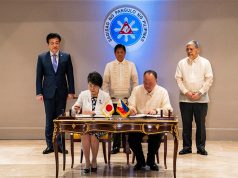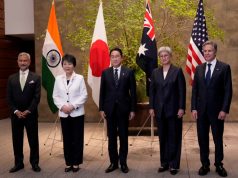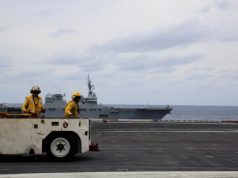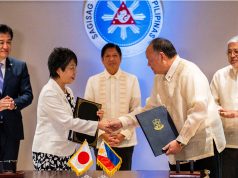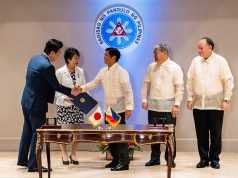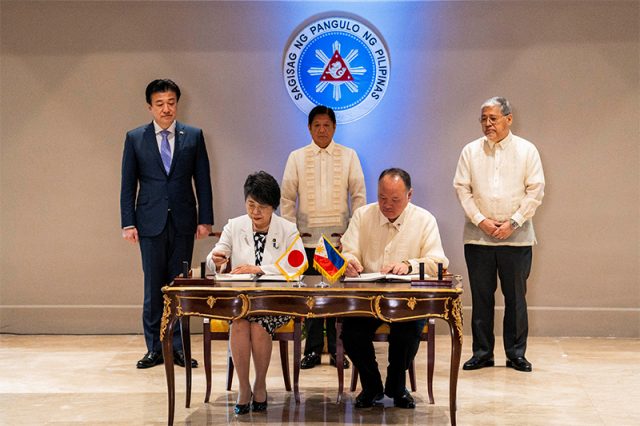
(Update 2 2:43 p.m.) The Philippines and Japan boosted their defense ties and signed a reciprocal access agreement (RAA) on Monday, saying they were seeking stability in the region, amid rising tensions with China.
READ: Philippines, Japan to sign landmark defense deal on Monday
Japanese Foreign Minister Yoko Kamikawa described the pact, which eases the entry of equipment and troops for combat training and disaster response, as a “landmark achievement”.
The deal is the first of its kind to be signed by Japan in Asia, and coincides with a rise in aggression by Chinese vessels in the disputed South China Sea.
“This is another milestone in our shared endeavour to ensure a rules-based international order,” Philippine Defense Minister Gilberto Teodoro told reporters after the signing.
Both the Philippines and Japan, two of the United States’ closest Asian allies, have taken a strong line against what they see as an increasingly assertive China in the South China Sea, a region where Beijing’s expansive claims conflict with those of several Southeast Asian nations.
An international tribunal in 2016 said China’s claims had no legal basis, a ruling that Beijing rejects.
Japan, which last year announced its biggest military build-up since World War Two in a step away from its post-war pacifism, does not have any claims to the South China Sea, but has a separate maritime dispute with China in the East China Sea, where they have repeatedly faced off.
It has supported the Philippines‘ position in the South China Sea and has expressed serious concern over China’s actions, including recent incidents that resulted in damage to Philippine vessels and injured a Filipino sailor.
“The Philippines and other Southeast Asian Nations are situated in…a key junction of Japan’s sea lanes; advancing defense cooperation and exchanges with the Philippines is important for Japan,” Defense minister Minoru Kihara added.
The Philippines has a Visiting Forces Agreement with the United States and Australia. Tokyo, which hosts the biggest concentration of U.S. forces abroad, has similar RAA deals with Australia and Britain, and is negotiating another with France.
The RAA will take effect after being ratified by both countries’ parliaments.
—Reporting by Mikhail Flores and Karen Lema; Editing by John Mair and Miral Fahmy




